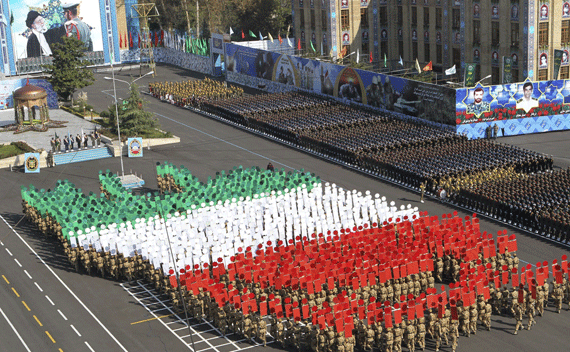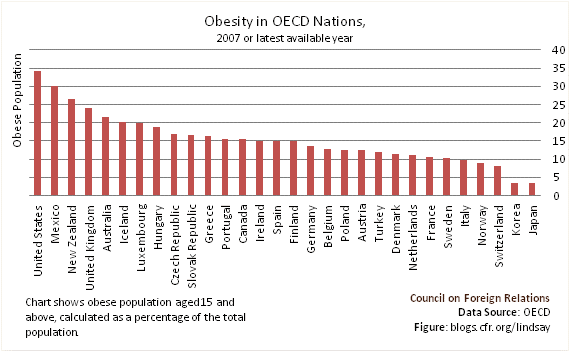Friday File: What Are the Next Steps on Iran?
More on:

Above the Fold. This week’s IAEA report on Iran’s nuclear activities provides many new details but its basic point has been known for a long time: Tehran looks to be trying to go nuclear despite stiffening international sanctions. The report’s release produced predictable demands from Republican presidential candidates that the White House get tougher with Tehran. (Expect to hear these calls repeated at tomorrow night’s debate and throughout 2012.) A U.S. push for tougher sanctions is inevitable and will have Europe’s support. But ignore any talk you hear of barring Iran from exporting oil or importing gasoline. (Yes, one of the world’s largest oil producers imports gasoline.) It’s not in the cards. China and Russia will certainly veto any such proposal at the UN, and they will likely have the support of countries such as Brazil and India. We will instead get more sanctions. Will these be sufficient to persuade the Islamic Republic to finally heed international demands to stop its nuclear activities? Don’t bet on it. So are we stuck with a choice between capitulation and war? Not necessarily. While the commentariat chews over the probabilities and timing of an Israeli and/or U.S. military strike on Iran’s nuclear facilities, the Stuxnet virus and the killings of Iranian nuclear scientists suggest that a low-grade, high stakes covert war is already underway. What we don’t know is what other black operations could be launched and how much they might delay Iran’s nuclear progress. Here is an instance in which what might be called Cain’s Caution holds true: sometimes in deciding what the United States should do overseas it helps to know what the president knows.
CFR Event of the Week. Adm. Thad Allen (USCG Ret.) swung by CFR this week for a conversation in which he discussed his experiences as an admiral in the United States Coast Guard and the many crises he managed including the aftermath of Hurricane Katrina and the Deepwater Horizon Oil Spill. To learn more, you can download the audio of the talk, or watch the video.
Read of the Week. Sen. Lindsey Graham (R-SC) writes at length in the National Review about President Obama’s foreign policy choices, and he doesn’t have much nice to say. Graham’s core charge is that “President Obama will sacrifice strategic thinking on national security in favor of raw political calculation.” The White House no doubt doesn’t like this accusation, but it can expect to hear it a lot from whoever wins the GOP presidential nomination.
Blog Post of the Week. Mike Moran, whom I had the great pleasure of working with a few years back when he was editor of CFR.org, launched a new blog over at Slate called "The Reckoning." His first post is aptly titled, “The Reckoning.” His animating thesis is straight forward: globalization has ushered in the relative (not absolute) decline of the United States and made the U.S. economy subject to forces beyond Washington’s power to control. How well the United States responds to the changing geoeconomic environment will go a long way in determining not just our standard of living but also our global reach.
Poll Question of the Week. Assessments of the outcome of the Eurozone debt crisis seem to gyrate between optimism and pessimism. Coming into the week optimism was winning, and the financial markets were headed up. Then pessimism suddenly took hold, the markets tanked, and experts resumed talking about the end of the euro. Despite these gyrations, Germans remain confident; eight-in-ten Germans believe that the euro will survive the current crisis. Their neighbors in France certainly aren’t eager to see the euro crater; only one-in-three people in France want to resurrect the French franc. The question, of course, is whether the Germans, the French, or other Europeans are willing to pay the price to keep the Eurozone going. Two-in-three people in France oppose contributing yet more money to solve the crisis. That’s not good news. Unless all the experts are wrong, it’s going to cost a lot more to keep the Eurozone intact.
Chart of the Week. Earlier this year the United Nations hosted a high-level meeting intended to throw a spotlight on the need to combat noncommunicable diseases (NCDs). One of the leading causes of NCDs is obesity. On that score, the United States leads the world and not in a good way. You might note that four of the five most obese countries are English-speaking. This is a good point to invoke the old social science adage that correlation does not equal causation.
Too Good Not to Note. Max Boot argues that U.S. troops can win in Afghanistan if only Washington lets them. Elizabeth Palchik Allen says that Obama’s decision to send up to a hundred combat-equipped U.S. military advisers to central Africa is about more than humanitarianism. Spencer Ackerman and Noah Schachtman argue that Mitt Romney has pivoted “away from neoconservatism, and towards something more reserved.” Jim Tankersley sees signs that the GOP presidential candidates are embracing a dangerous economic isolationism. Elizabeth Kolbert explains why a small change in average global temperatures would have a major impact on the climate.
Perils of Prediction. “You will be home before the leaves have fallen from the trees.” Kaiser Wilhelm II to German troops headed to the front in August 1914. World War I officially ended ninety-three years ago today, or more than four years after the Kaiser thought it would. More than 8.5 million soldiers were killed. By some estimates the civilian toll may have been as high or higher.
Quote to Ponder. “Pretend to be completely in control and people will assume that you are.” Nolan Bushnell, founder of Atari, to a young Steve Jobs.
A Reason to Smile. A Reese’s Peanut Butter Cup.
More on:
 Online Store
Online Store
